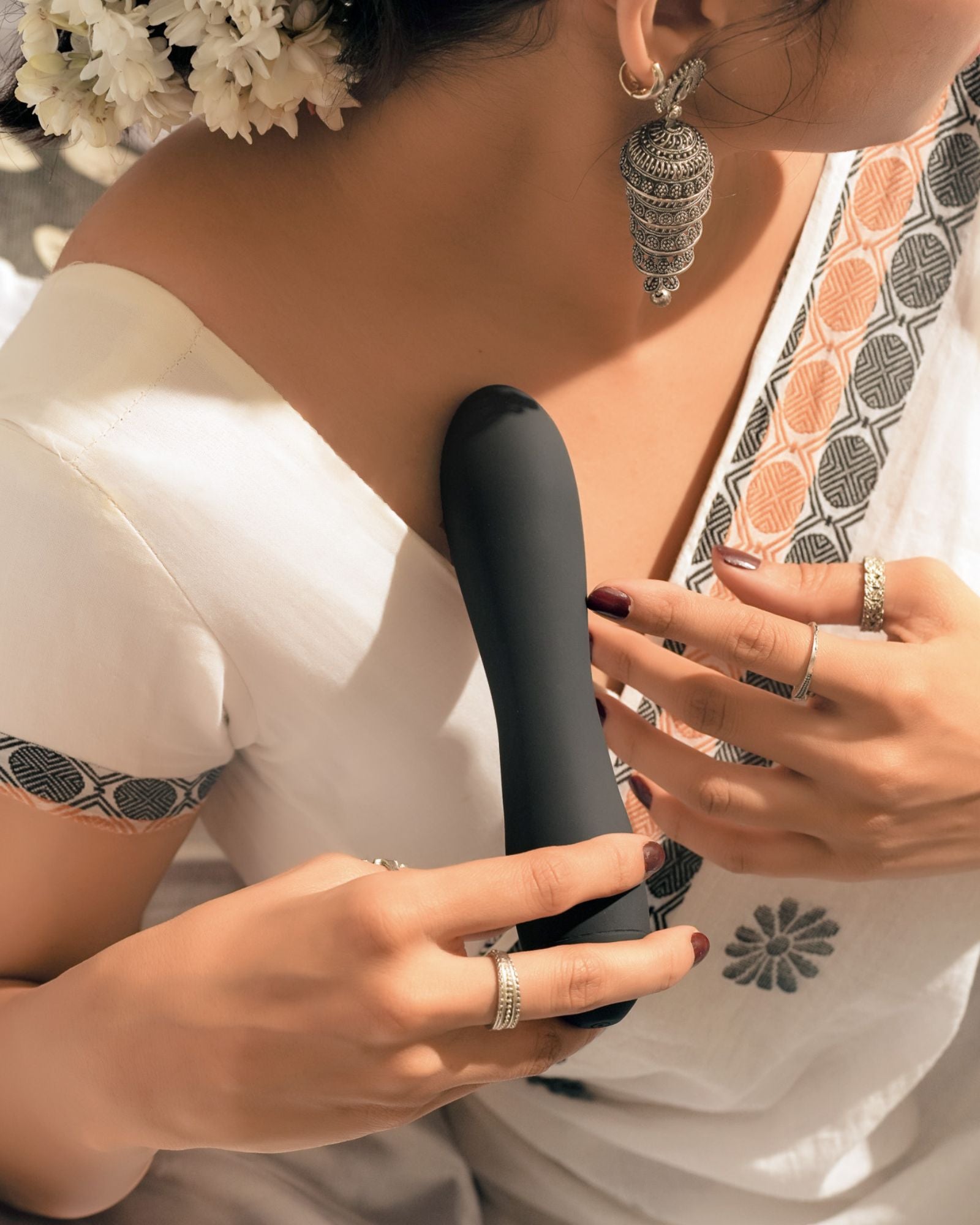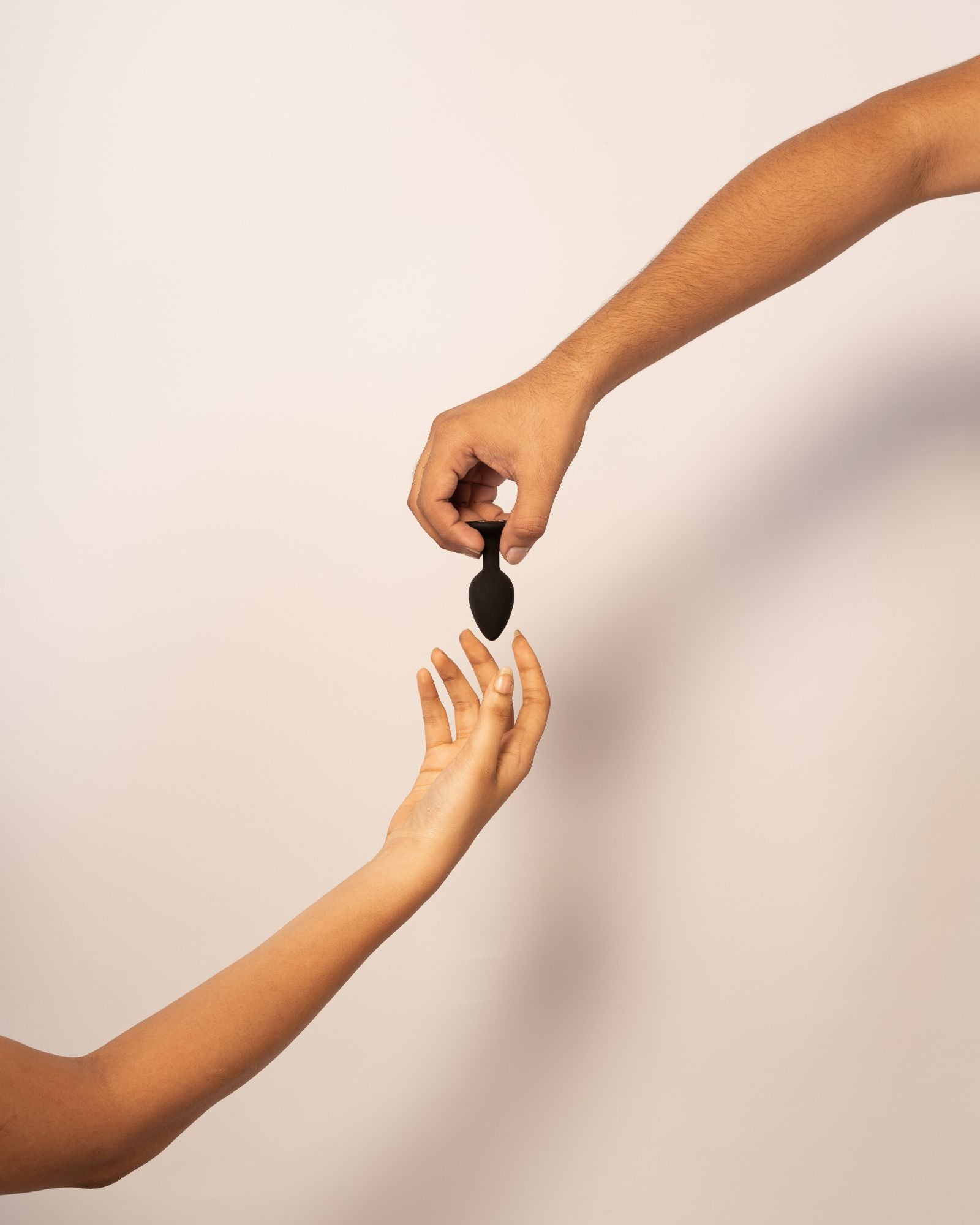Why do we talk about sex?
What started off as a rigid dialogue for STI Prevention and Family Planning, soon grew into conversations around equal pleasure and equality in the bedroom. The elusive and confusing concept of orgasms became a benchmark for great sex.
Pleasure was a right we all had, and it was only fair that your partners gave you as many orgasms as they had with you.
If you gave your partner oral sex, what had they done to bring you to orgasm as well?
And if you had just orgasmed from their touch, how was it fair for you to simply roll over and fall asleep without ensuring that they had an earth-shattering orgasm too?
What position will give you G-spot orgasms?
What is the difference between penile orgasms and prostate orgasms?
Is your partner having more orgasms than you are?

This often brief and superficial conversation on the orgasm gap from a statistical viewpoint alone seems to shift focus entirely to the act of genital touch or contact with erogenous zones.
It categorises some acts as foreplay, and others as ‘real sex’. It asks you to look at sexual acts that end with orgasms as satisfactory and successful, while minimising those that do not lead to orgasm.
But orgasms are a product of your body and mind coordinating and being in sync with your nervous system. “Touch me here” and “More tongue, less teeth” can do great things to enhance your pleasure, but they are not guaranteed to come with orgasms either.
Because orgasms don’t come from your genital region, they come from your nervous system.
The Central Nervous System regulates your brain, spinal cord and nerves while your Peripheral Nervous System works with your skin, limbs, muscles and organs.
The limbic system in your brain handles your breathing, pulse, blood pressure and emotional processing.

All of these components come together to bring you to orgasm, and yet, they are not the only ones. Your thoughts in that moment could affect it too.
That distracting light that keeps flickering in the corner?
That could derail your orgasm too. Your puppy waiting outside the room for pets and treats?
Your partner’s overwhelming cologne?
You hearing a song that reminds you of that ex who treated you poorly sexually?
Every single one of them can delay your orgasm, weaken it, strengthen it, speed it up or make you have multiples. Except, you won't always be able to choose which outcome you would like.
Can you imagine expecting a 100% success rate for orgasms when these are the number of factors that have to come together to make one happen?
But before we deconstruct this idea with our usual pleas to approach sex and intimacy with as much kindness and openness to change as possible— let’s look at this from a more clinical perspective.

Anorgasmia, or the state in which a person does not experience orgasms within their ‘desired time’ or does not have orgasms at all, can happen to anyone.
You could experience erections without orgasms regardless of the intensity of sexual play you attempt, you could experience clitoral fatigue from nonstop stimulus, and orgasms can evade you entirely.
Anorgasmia can be of four types:
- Primary— where you have never experienced an orgasm in your entire life
- Secondary— where you used to have them, but do not lately
- Situational— where some scenarios make it difficult to orgasm
- General— where changes in environment, position, etc. have not helped you find that orgasm either
Another condition, known as anejaculation, can also affect a person’s ability to ejaculate. You could orgasm and not ejaculate, where the semen flows backwards towards the bladder instead of making its way out. Or, you could miss the orgasm as well as the ejaculate, but still experience wet dreams and ejaculate in your sleep.

The possible causes for these conditions are almost endless. You could have experienced an injury to the spinal cord, or survived a sexually traumatic event. You could be diabetic, or menopausal, or have multiple sclerosis.
You could have pelvic floor dysfunction.
You could be recovering from cancer treatments.
You could be on SSRIs for your depression.
You could have grown up in an extremely controlling and orthodox environment that has left you physically petrified of sexual acts.
You could be stressed from work, exhausted from caring for others, overwhelmed from financial changes or simply growing older.
How do we talk about orgasms and treat them as an end goal to sexual play?
How do we make peace with growing older when sex and intimacy are rarely discussed as an ever-growing and ever-changing process, and are instead treated as a checklist of touches and sensations with orgasms as the final crescendo?
If orgasms were the destination you set your eyes on, and partnered sex is the car that you hope will take you there, your nervous system and everything under its purview in your body is the driver.

Of course it is your right to seek medical support or professional advice when your experiences of sex and intimacy do not match the ones you crave or fantasise about. Of course it is within your right to be upset with partners who treat your pleasure as secondary to their own.
But the overwhelming aftermath of traumatic events is likely to happen to any of us.
Age is inevitable.
And disability? Well, if you are able-bodied, you are only able-bodied for now.
It is unfair, unrealistic and quite a scary affair to take a handful of sexual experiences and expect every single one to feel exactly
like that for the rest of your life.
Everything changes, and so will you. And it’s important you find love for yourself even then. Maybe when we talk about sex, we need to talk about discovering and rediscovering ourselves for the rest of our lives.


















Leave a comment
This site is protected by hCaptcha and the hCaptcha Privacy Policy and Terms of Service apply.